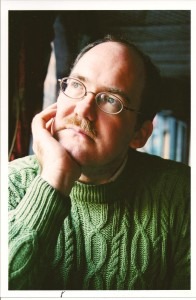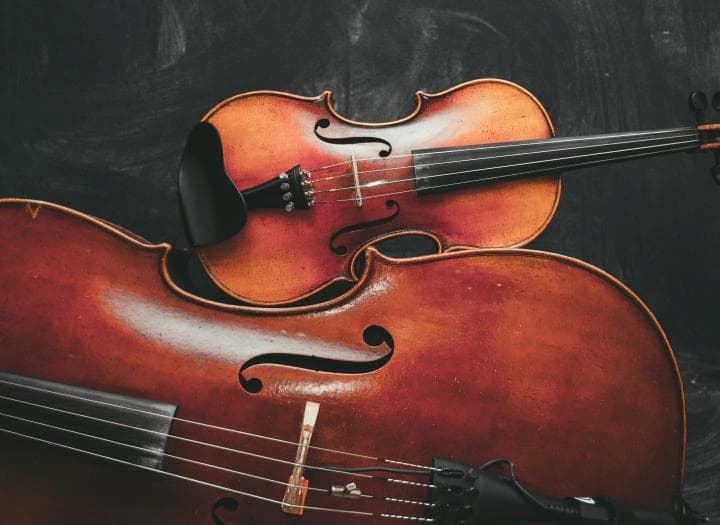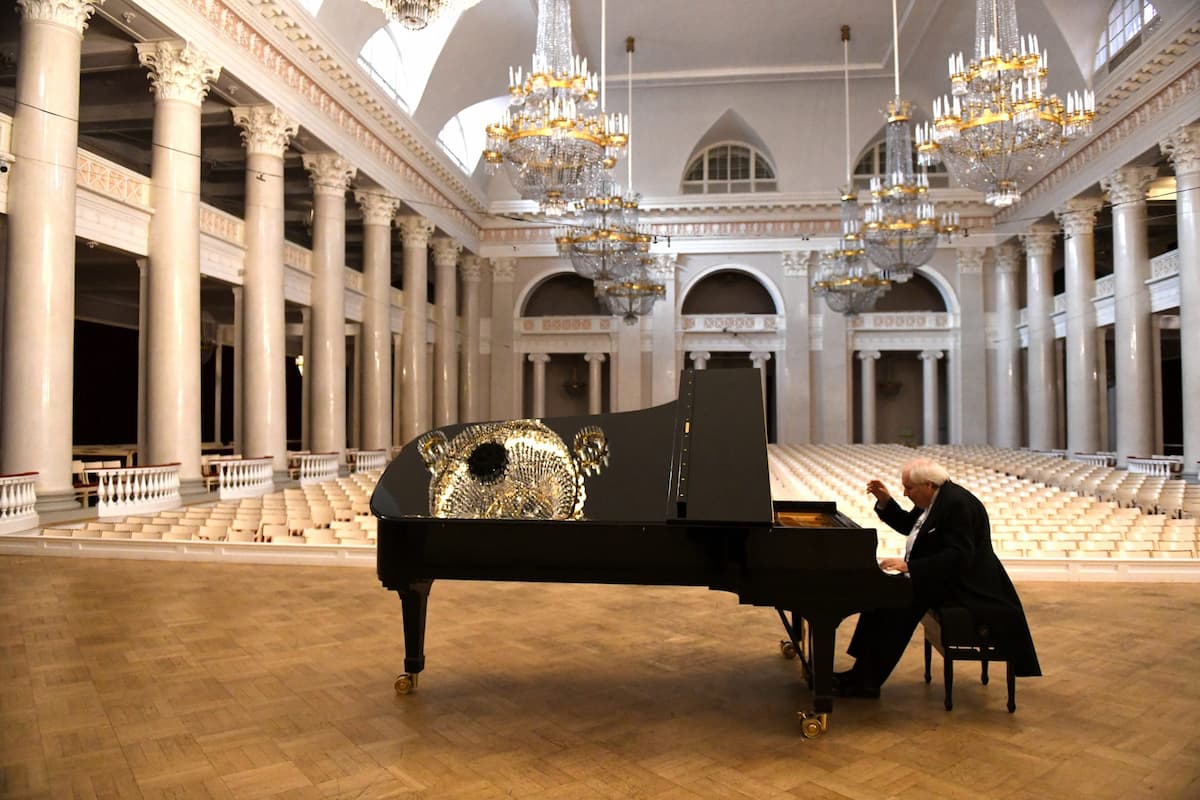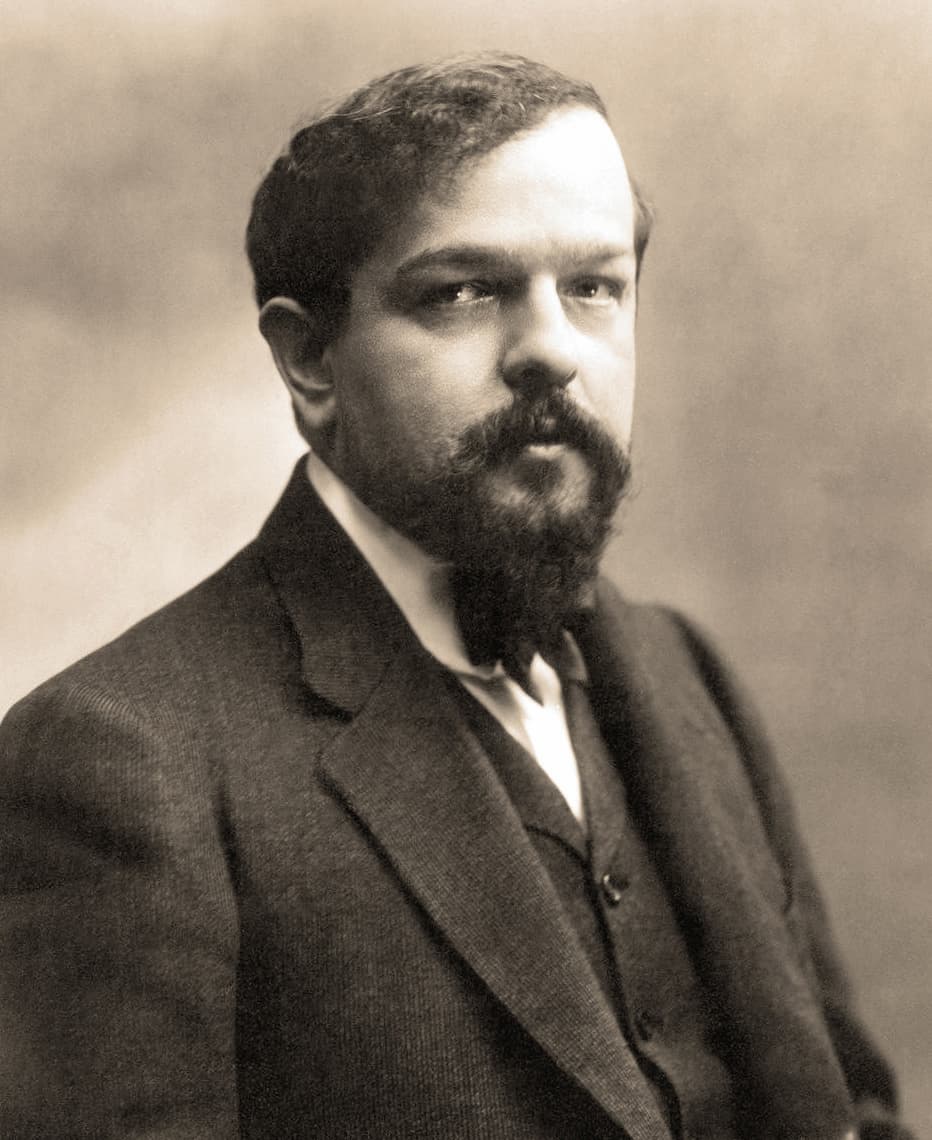 Ken Smith is the Asian cultural critic for the Financial Times. He also covers opera in China for Opera magazine in London and opera in the West for OPERA magazine in Shanghai. A frequent arts commentator or RTHK Radio 4, he was for 15 years a North American critic and correspondent for Gramophone magazine.
Ken Smith is the Asian cultural critic for the Financial Times. He also covers opera in China for Opera magazine in London and opera in the West for OPERA magazine in Shanghai. A frequent arts commentator or RTHK Radio 4, he was for 15 years a North American critic and correspondent for Gramophone magazine.
MB = Maureen Buja
KS = Ken Smith
MB: How did you start as a music critic?
KS: I studied journalism, mostly because I couldn’t make up my mind. The degree program at Ohio University required at least two minors, which I initially declared as political science and economics. But I kept talking literature and music classes—again, not making up my mind—and ended up with minors in all four. At OU, journalism was about breath of knowledge, not depth, and my combination of subjects turned out to be perfect for the Financial Times. But back then I wasn’t going to write about the arts. I was focusing on grown-up things like government and business. Even before graduation I was working as an intern and later a freelancer with the Scripps Howard News Service and the Associated Press. My brief stint in political journalism started in early 1988, continued through the political conventions in Atlanta and New Orleans and ended with George H.W. Bush’s inauguration in January 1989. But I was burned out. News services are great at getting raw facts, which is essential journalistic training. But it didn’t leave much room for exploring what those facts mean. After graduation I moved to New York and went entirely in the opposite direction deadline-wise into book publishing. As an undergraduate, I’d interned for a summer at Farrar, Straus and Giroux, a literary publisher; this time I went to Random House, working in production. When the company eliminated my position two years later I was ready to return to writing. I became an editor at a trade union newspaper, and was soon “traded” to another division that published local neighbourhood newspapers. My colleagues there had all been downsized from major journalism jobs, places like Vogue and Institutional Investor and the Daily News. We all covered local business openings and grassroots politics—and each of us had an arts specialty. Mine was classical music and jazz.
That “community” angle gave me my initial voice. By the end of the year, I’d seen 250 concerts. I knew all the venues, their strengths and weaknesses, and got a wonderful connection into the contemporary music scene in New York. That was essentially my internship as a critic.
In 1996, within a couple of weeks my life changed completely. Time Out magazine opened its New York edition. A freelance critic for Newsday left to take a full-time job in Detroit, and the New York arts correspondent for the Los Angeles Times was hired as chief music critic and had me replace him. Suddenly I had three part-time jobs.
MB: You said you found a connection to the contemporary music scene?
KS: I was trained as a reporter, so I never understood old-school critics who refuse to interact with artists, lest they lose their objectivity. If you have questions, you should always ask the best source. Historically, the biggest mistake critics have made is criticizing, say, Mozart for not being Beethoven. You need to know artists’ intentions before you can tell whether they’ve succeeded.
Beyond that, though, contemporary music became a deliberate choice. For years, I focused on music younger than me. Really, thousands of people have written more perceptively about Mahler than I ever will, but with David Lang or Steve Mackey I’m on the front lines. I’d put the same amount of preparation into Mahler or Mackey, but one will have significantly more impact.
MB: How do you prepare for a concert where you will be reviewing?
KS: It varies, depending on the readership: what an FT reader knows and expects to learn is different from a reader of Opera News. Specialized magazines need more detail. But the work is often more for me than my readers. I once did a preview of Stephen Paulus’s opera The Postman Always Rings Twice for Time Out New York. I read the novel by James M. Cain, saw both Hollywood films—from 1946 and 1981— and found Visconti’s film Ossessione, a wacky Italian noir based on Cain’s story. By then I was ready to write. That was four nights of work for an article that only paid only $100, but that was what felt right. And I also found intersections between opera and Italian neo-realist cinema that I’d explore later.
With opera, I always try to read the source material. The National Center for Performing Arts (NCPA) in Beijing recently premiered The Dawns Here Are Quiet, about a group of women anti-aircraft gunners who are outnumbered by German paratroopers. I couldn’t find Boris Vasilyev’s novel in English, but the 1972 Russian film was on YouTube with subtitles! It was propaganda of the most sophisticated kind, and despite the battlefield scenes actually quite operatic. Each woman is a completely different character type. In the opera, however, too many details were cut, which lost much of the story’s original point. But only by knowing the source material could make that judgment.
Reviewing repertory pieces for the first time, I try to listen to as many different interpretations as possible. With Mahler’s Fourth Symphony, I’d heard at least six different recordings—several by the Vienna Philharmonic. I needed to be able to separate the conductor from the orchestra from Mahler to evaluate the performance.
MB: Do you attend concerts where you aren’t reviewing?
KS: Sometimes, when I want to learn more about certain artists, or perhaps see a new hall. Any venue needs to be seen in more than one context. For example, I went La Fenice in Venice I went to both an opera and a concert. But I usually need a professional reason to go.
MB: How much say do you have in deciding what to write about?
KS: Andrew Porter created the FT arts pages expecting critics to write about what interested them. They rarely approach me. Most critics, though, review hometown events for hometown readers. The FT is published in London, but its arts beat is international. The editors’ primary question is “is it of international interest?”
Any reviewer must be both a critic and a reporter. Sometimes something that is purely normal for locals is news for an international audience. For example, ushers at the NCPA are armed with laser pointers, originally to pinpoint people taking illegal photos or videos, but now they aim at any unruly behaviour. A Beijinger would already know this, but a New Yorker would need an explanation.
MB: How often do you find yourself reviewing the same performer(s) more than once? Do you ever make comparisons in your mind (that don’t necessarily end up in print)?
KS: In China, the same artists tend to surface in different cities, in different venues, The same is true of some audience members, who follow their favourite artists. Given China’s population, its music world is surprisingly small.
As for the actual review, a veteran reporter once told me there are always two stories: the one you write for the paper and the one you tell your friends at the bar. I’ve always aimed straight for second, but that works only if you and your readers share a cultural frame of reference. Irony and humour don’t always translate, even to other English-readers.
MB: How do you see the interaction of music criticism with music journalism or related fields such as lifestyle reporting, special interest advocacy, sale agent for record companies or simple-minded nationalism?
KS: They all have different purposes, though there is some overlap. A music critic is also a music reporter. No review is useful unless it’s connected to a place. When Ruth Reichl was restaurant critic at the New York Times, she said she was basically uninterested in writing about food. She was interested in Who eats What and Why.
As for lifestyle reporting, there’s much room for reporters with critical discernment. I saw a recent business report on investing in high-end musical instruments. Unlike most capital expenses, instruments can actually appreciate in value, especially if the person playing them adds artistic value. And who better than a critic to tell this story?
MB: Is there really still a need for music criticism and what is the essential difference to blogging activity?
KS: Oscar Wilde said there were no art critics in ancient Greece because everyone was an art critic. Well, everyone online today has a printing press, so to speak. And the opinions are hotter than ever. The problem is one of trust. Despite the backlash against the mainstream media, The New York Times will always carry more weight than any individual blog. A.O. Scott, the Times’s chief film critic, recently made point slightly differently. What was important was not that what he or the New York Times has to say, but the fact that thousands of people were all responding to it at the same time over their morning coffee. No blog has that kind of social engagement.
Online journalism still lacks an overriding definition. Ohio University, my alma mater, has adopted the following standards: (1) Content must be wholly separate from the finances of the organization and (2) Content must have at least one level of editorial oversight between the writer and the reader. Anything else is either publicity or self-indulgence.
MB: What was the most memorable concert (either positive or negative) that you attended?
KS: Every part of the experience is fair game, so often what’s memorable has little to do with the music. When I was 19, I went to performance of La Traviata in Charleston, WV, with Cornell MacNeil singing Germont and the role of Alfred played by his real son. The relationship between the two was palpable and tremendously effective, even when the elder MacNeil was singing about a quarter-tone flat.
My first western opera in China was Verdi’s Nabucco, which the Polish National Opera brought to Beijing in 2001. Back then, the audience came to the show as if it were a traditional Chinese opera. Many brought their own food, which drove the ushers crazy. I remember one usher fighting with an old woman over an entire roast duck.
MB: Was there anything you’ve reviewed that on later thought you changed your opinion about?
KS: I’ve later downgraded a piece I initially loved when I heard it in a different context. Mikel Rouse’s opera Dennis Cleveland premiered at The Kitchen in 1996 pushing all the right buttons. The format was that of a talk show, with cast members sitting in the audience. By the time it got to Lincoln Center in 2002, after a good run on the festival circuit, it was a disaster… It was a better production in every way, but material that originally riffed on cheesy mid-‘90s hip-hip dated just as quickly as the real thing.
MB: Have you received any irate mail or comments?
KS: Letters usually go to the editors, who shield me. I rarely get irate emails, but one time I was confronted by a composer at a party. We argued for maybe 10 minutes before I realized he was talking about something another critic had written. Another time, I was approached by a performer who actually thanked me for a negative review. Well, maybe not thanked, but she admitted that the critics who wrote favorable reviews didn’t understand the work, and at least I could tell what she was doing.
Funnily enough, I once got an irate response from a favourable review. Years ago, I wrote that a Naxos recording of Bright Sheng’s orchestral works by the Hong Kong Philharmonic was much better than the Singapore Symphony’s for Bis. Evidently, Robert van Bahr, the CEO of Bis, said, “Well, that’s it, then…” and cancelled his remaining projects with the composer. I heard this from Bright Sheng months later, once he’d calmed down.
State of the Business
MB: With the growing number of papers that do not have critics, what do you see as the future of print criticism?
KS: Arts criticism has been part of mainstream journalism since the 1700s, so it’s a shame to see this dwindle. But print as whole is making a rocky conversion. Few critics have crossed over into print via the web, though some print people (Alex Ross being the prime example) have mastered web skills. I would argue that music criticism is now at an historic height, only that fewer people are being paid for it.
MB: Do you see blogs having the same power as print criticism, or a different effect?
KS: Very different, and in almost every way better. After three centuries of cultivating a vocabulary that verbally represents the musical experience, we can actually incorporate the sound itself in a web review. The possibilities are astounding. The downside is that more is not always more. The hyperlink lends itself to wide leaps in conjecture, but screen fatigue makes it difficult to process verbal content with the same level of comprehension.
MB: What would you suggest for up-and-coming critics for honing their talents?
KS: Virgil Thomson, arguably the most influential American whoever wrote about music, claimed in his deceptively naïve way, “all you have to do to be a music critic is to know about music and be able to write.” I know hundreds of critics, and no two of them got into the business the same way. The only thing they share is that they’ve cultivated a critical voice—not just a particular taste or perspective, but the knowledge of where it came from—and an ability to keep the reader’s attention. The most ground-breaking perceptions are meaningless if the reader stops halfway through the review.
Lifestyle questions:
MB: What time do you typically get up? What do you do the first hour of the morning?
KS: In what time zone?
MB: Do you have a guilty pleasure and what is it?
KS: Being neither Catholic nor Jewish nor Confucian I am unfamiliar with guilt. I have many pleasures.
MB: What book are you reading now? What is your favourite book ever?
KS: Ever? That’s like saying what’s your favourite composer, or food. It always depends on the context. I’ll say Lolita, partly because of Nabokov’s linguistic brilliance and partly because it annoys all the right people. Right now I’m just finishing Girl, 20 by Kingsley Amis. I’ve had it sitting on my shelf for 20 years. I probably would’ve read it much sooner if I realized the narrator is a music critic.
MB: What music do you listen for pleasure?
KS: Not much, really. I have at least 10 opera CDs and DVDs to review for an awards ceremony. One of them, I discovered, is the Glyndebourne Rosenkavalier where my former boss at the FT, right before he retired, referred to Octavian as a “chubby bundle of puppy-fat.” He created quite a stir, but once you see her beside some model-gorgeous singers (one of whom appears naked in the shower) you do see his point. I just got back from ClassicalNEXT, where they asked me to mentor a few artists who want to go to Asia, which means another stack of recordings to review and offer some targeted suggestions. And after that, I can get to a dozen classic fado recordings I picked up on a recent trip to Lisbon.
FT Der Rosenkavalier
ClassicalNEXT
MB: Difference between the classical music scene (repertoire, artists) in your country vs other major cities.
KS: Wow. Where to begin? The broad strokes in Asia are remarkably similar to classical music’s early days in the US: European performers playing strictly for European audiences; locals soon finding the art form so glamorous the pay visiting artists more money thay tney’d get at home; newly rich residents in the hinterland start building their theatres. locally trained musicians finally being taken seriously; local composers starting to write works in their own vernacular.
Of course, the details are different, beginning with the timeline. Each territory I work with has a different relationship to the West that needs to be taken into consideration. Just looking at China alone, comparing it to the US is just silly. In the century since Tchaikovsky opened Carnegie Hall, China has had a Japanese occupation, a brutal civil war and a triumphant Communist Party whose relationship to Western culture has been, to say the least, conflicted.
“New Music” as an entity, though, started about the same time in both countries, mostly with local composers trained in Europe. But in China it became part of the May 4th Movement (“taking only what is useful”) and wrapped up in vernacular verbiage, particularly the Chinese art song tradition. Thanks to Mao, music later had to serve the state — whatever that meant at any given time.
The differences are so fundamental that everything I write should be slightly unsettled to properly depict the circumstances. My advantage, though, is that nearly every publication I write for is British, and before I came to China I had nearly 15 years of consciously educating that readership that America was not Europe. We have an entirely different relationship to the art form, and just because something is different does not make it fundamentally wrong. I will take “sloppy” Gershwin structure over “perfect” Brahms any day. The real point of music criticism—beyond mentioning if the soprano hit all the high notes—is to be as attuned as possible to that culture surrounding a given piece or performance and to relate that context to the reader.
MB: What’s your favourite piece?
KS: As I said earlier, it’s like food—dependent on the time and place. It’s a funny business. Andrew Porter usually had no idea what he thought about a piece until he finished writing about it. John Cage used to talk about coming to each piece with “happy new ears.” And Virgil Thomson once wrote that it took him a couple of years as a critic till he was able to “wake up each morning blissfully unaware of what I heard the night before.”



